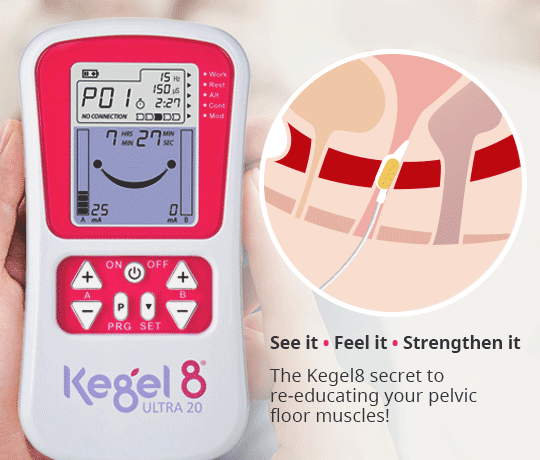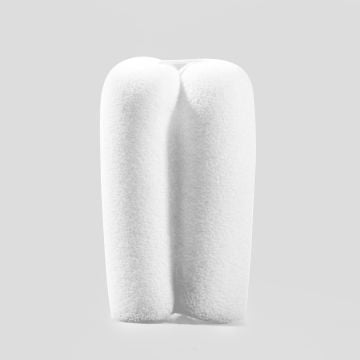
A sensitive bladder, also known as an overactive bladder (OAB), is a condition characterized by a sudden and frequent need to urinate. If you develop a sensitive bladder, you experience urinary urgency, meaning you feel a strong and compelling need to urinate, even if your bladder is not full. This can also lead to episodes of urinary incontinence, where you may involuntarily leak urine before reaching the toilet.
Several factors can cause the bladder to be irritated and contribute to a sensitive bladder:
What irritates my bladder?
Muscle Weakness: Weak pelvic floor muscles can lead to a loss of bladder control and an increased risk of urinary urgency and incontinence. These muscles are responsible for supporting the bladder and maintaining urinary continence. Pelvic floor muscle exercise can help, and Kegel8 Ultra 20 exercises even the weakest of kegel muscles.
Nerve Dysfunction: Nerves control bladder function, signalling the brain when it's time to empty the bladder. If there is nerve damage or dysfunction, the signals may become inaccurate, causing the bladder to contract involuntarily even when it's not full. For women the Kegel8 Ultra 20 v2 calms bladder reactions. The sensations created by the electrical impulses have a soothing effect on the nerves to the bladder combatting Overactive bladder (OAB), Frequency, Urgency and nocturia (getting up more than once a night to wee. For men pelvic floor strengthening treatment using the Kegel8 V For Men will also calm the 'jangly' nerves.
Inflammation: Inflammation of the bladder, known as cystitis, can cause irritation and increase sensitivity. Urinary tract infections (UTIs) are a common cause of cystitis and can lead to temporary overactive bladder symptoms.
Bladder Obstruction: Conditions that block or partially obstruct the flow of urine from the bladder can lead to irritation and overactivity. Enlarged prostate in men and bladder stones are examples of potential obstructions. Research has shown that pelvic floor exercise is a good way to reduce the body's inflammatory response, and, in this way, it can help enlarged prostate symptoms.
Medical Conditions: Certain medical conditions, such as interstitial cystitis or bladder cancer, can cause bladder irritation and lead to an overactive bladder.
Certain Foods and Beverages: Consuming certain foods and beverages, such as caffeine, alcohol, spicy foods, and acidic substances, can irritate the bladder and worsen symptoms for some.
Medications: Some medications can contribute to bladder irritation and increased urinary urgency.
Hormonal Changes: Hormonal fluctuations, especially during menopause in women, can affect bladder function and contribute to a sensitive bladder.
Constipation: Chronic constipation can put pressure on the bladder and worsen symptoms of an overactive bladder. A squatting stool like the Go Better toilet stool will help combat constipation and take the pressure off a weak pelvic floor with all the straining.
We are all different, and the causes of a sensitive bladder can vary from person to person, and sometimes it may be a combination of factors. If you are experiencing symptoms of an overactive bladder, have a chat with your GP or health professional for proper evaluation and diagnosis. They can help determine the underlying cause and recommend appropriate treatment options, which may include lifestyle changes, pelvic floor exercises (like Kegel exercises), medications, or other interventions to manage the condition effectively. If we can help you with a device to automatically perform pelvic floor exercises and soothe a sensitive bladder, please Book a Call.







